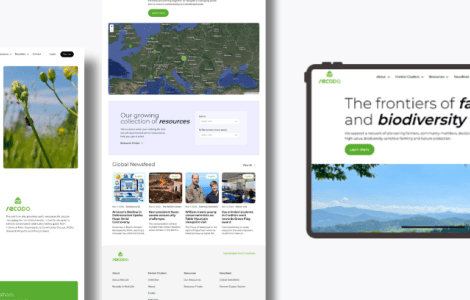Sandra Nogué Bosch's scientific work on islands as sensors of environmental changes receives the Barcelona City Award
CREAF and Universitat Autònoma de Barcelona researcher Sandra Nogué Bosch has been recognized with the 2023 City of Barcelona Award in the Environmental and Earth Sciences category, granted by the city council. The recognition highlights her contribution to the knowledge of the baseline of the diversity of the vegetation of the oceanic islands and the determination of the anthropogenic effect. The Catalan researcher - who has developed a significant part of her career in the United Kingdom and who currently coordinates a ERC (European Research Council) project - expresses her enthusiasm for the distinction: "It's a great honor and a surprise. It's a recognition of the research of recent years together with an extraordinary group of scientists. I'm very excited".
The Barcelona City Award highlights her work Long-term trajectories of non-native vegetation on islands globally, published in the journal Ecology Letters, for being an excellent contribution to baseline knowledge on the diversity of the vegetation typical of the oceanic islands and the determination of its anthropogenic effect. The scientific article is signed in collaboration with several specialist colleagues in Paleoecology, Archaeology, Biogeography and Island Ecology, from international institutions such as the University of Bayreuth (Germany).
The work of Sandra Nogué Bosch has relevant implications for the transfer of scientific knowledge and for improving the management and conservation of the diversity of terrestrial ecosystems.
"Thanks to collaborations such as those of Anna Walentowitz and Manuel Steinbauer we processed the microfossil data (pollen) from local islands on a global scale", points out the CREAF and UAB researcher. "The basic temporal data of fossil pollen are of great value, as they have allowed us to understand how vegetation has been changing over long time scales". Nogué Bosch's work has relevant implications for the transfer of scientific knowledge and for improving the management and conservation of the diversity of terrestrial ecosystems.
Currently, Sandra Nogué Bosch coordinates the ERC project “Island Time-Lines to quantify biodiversity change” (TIME-LINES), with which she explores one of the most relevant questions in ecology and paleoecology: where biodiversity changes, at what speed and why, through the study of 5,000 years of changes in plant biodiversity, as well as the agents of these changes. For this she will use a series of high-quality palaeoecological records obtained from the sedimentary sequences of islands around the world. The results will make it possible to develop methods to quantify the effects of these agents of change, not only for the islands but for any place, and in a much deeper way than has been done so far and they will be able to guide us on which trajectories are useful for the sustainable biodiversity management.

"The City of Barcelona Award is a great honor and a surprise: it is a recognition of the research of recent years with an extraordinary group of researchers. I am very excited"
SANDRA NOGUÉ BOSCH, CREAF & UAB researcher
Nogué Bosch is vice-president of communications at the International Biogeography Society and associate editor of the journal Global Ecology and Biogeography. She has also been a professor of Paleoenvironmental Sciences at the University of Southampton (United Kingdom).
The Ciutat de Barcelona Award has been awarded unanimously by the jury, made up of Esther Garcés (president), Santiago Giralt, Pablo Ortega, Alicia Pérez-Porro and Albert Soler. Along with Sandra Nogué Bosch, the Barcelona Supercomputing Center has also been recognized in the category of Experimental Sciences and Technology and Tomàs Marquès-Bonet, in Life Sciences.







